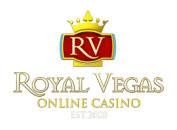Popular Sports Betting Licenses: Get to Know the Most Popular Ones
Every trustworthy betting house must obtain a license that enables its operation.
In this manner, regulatory bodies can oversee and ensure that brands will provide a satisfactory experience for their players, primarily focused on safety. By prioritizing the security aspect, regulatory entities are able to effectively monitor and enforce standards, ultimately safeguarding the interests of players. This proactive approach instills trust and confidence in the gaming industry, as players can rest assured that their well-being is of utmost importance. Through diligent regulation, brands can strive to create an environment that prioritizes player safety, fostering an enjoyable and secure gaming experience.
But do you know what the practical function of betting licenses is?
Sometimes, the subject is overlooked by bettors in their daily routine, but it is crucial to be aware of the advantages of accessing a licensed gambling establishment.
Our team has prepared a guide that will help you understand the subject.
Why does a betting house need a license to operate?
Various countries around the world have regulations in place for activities related to sports betting, as well as online casinos and gambling games in general. These regulations govern and ensure the fair and responsible conduct of such activities, providing a safe and secure environment for participants. The legality and licensing requirements vary from one jurisdiction to another, with some countries having stricter regulations than others. It is important for individuals and businesses involved in these industries to understand and comply with the specific legal requirements of the countries they operate in, to avoid any potential legal issues and to protect the interests of all stakeholders involved.
We can perceive the license as a monitoring and safeguarding tool for the industry, ensuring that brands operate fairly and securely for players. It serves as a means to oversee and protect the gaming industry, guaranteeing a level playing field and ensuring the safety and fairness of gaming experiences for all players. The license acts as a shield, shielding players from unfair practices and providing a sense of security and trust in the brands they engage with. By obtaining a license, brands demonstrate their commitment to transparency, accountability, and responsible gaming, fostering a trustworthy and sustainable gaming ecosystem.
Typically, the licensing authorities impose stringent requirements on operators who wish to operate in the country. These requirements are as follows:
- Proof of experience in the gambling/sports betting sector;
- Sufficient financial capacity to honor the payment of prizes and taxes.
- Effective player protection policies.
- Prevention of money laundering.
Furthermore, the license also serves to safeguard players, ensuring that companies adhere to transparent policies and practices. Additionally, it provides a level of protection for gamers, guaranteeing that organizations maintain a commitment to transparent policies and practices. Moreover, the license acts as a shield for players, ensuring that companies abide by transparent policies and practices. Moreover, it offers a layer of safeguarding for gamers, ensuring that companies operate with transparency in their policies and practices. Additionally, it acts as a protective measure for players, guaranteeing that companies abide by transparent policies and practices.
What Are the Most Popular Licenses in the World?
The United Kingdom, Malta, and Curaçao are three markets that hold popular licenses for sports betting establishments. These licenses are highly sought after by bookmakers operating in these regions. The United Kingdom, in particular, has a robust regulatory framework in place, ensuring a safe and secure gambling environment for consumers. Malta, on the other hand, is known for its attractive tax incentives and favorable business conditions, making it an appealing destination for online gambling operators. Meanwhile, Curaçao boasts a long-standing history in the gambling industry and offers a wide range of licensing options to cater to different types of operators.
However, each one of them possesses its own unique characteristics. For instance, the United Kingdom has considerably stricter requirements compared to Curaçao.
Licensed companies in each country may have some differences in their profiles, and that is precisely what we will delve into next. Let's now embark on an exploration of these variations.
1. United Kingdom
Regulatory Body: British Gambling Commission2. Malta
Regulatory Body: Malta Gaming Authority|
|
|
||
|
|
|
||
|
|
|
||
|
|
|
||
|
|
|
||
|
|
|
||
|
|
|
||
|
|
|
||
|
|
|
||
|
|
|
Commercial content notice: Taking up one of these offers may result in a payment to Top-Casinos.co.nz.
Over 18s only please gamble responsibly











